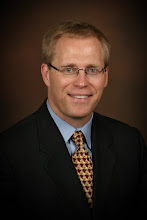Historically I have prided myself on winning trivia contests at the risk of being dubbed, "Cliff Claven" by my friends, but if someone asked me to name the members of The Supremes the only one I could name is Donna Summer (http://www.history-of-rock.com/supremes.htm). What we tend to remember is how the band sounds as a group not the individual members although there are exceptions such as Beyonce of Destiny's Child :) The key factor is how the band blends the individual talents to create something impossible for any one band member to produce.
In his very educational book, "First Among Equals", Judge Kenneth Starr (please see my "Books in 2005" posting from December 31, 2005), explains the US Supreme Court's culture and operating structures which to me parallels a musical band such as The Supremes. Not all the musicians/justices have the same talent or personality but when the concert is completed (the decision is handed down) we tend to remember one collective voice that speaks for the group. As a political scientist and aspiring historian my hope is that Americans would want to know more regarding institutions such as the US Supreme Court but as the following survey sent to me by my girlfriend -- yes, sadly I have corrupted her thinking :) -- shows most Americans are not die hard members of the "US Supreme Court Fan Club" able to name all the justices that currently serve on the nation's highest court:
Findlaw.com Survey -- US Supreme Court -- 24 Jan 2006
The Supreme Court of the United States is the pinnacle of the U.S. justice system. Its nine Supreme Court justices have made historic decisions that strike the balance between government for the people and personal liberty. Yet, 57 percent of Americans cannot name a single sitting justice.
In a recent FindLaw.com survey of 1,000 adults, only 43 percent could name at least one justice. The survey findings are especially significant given the even greater focus on the Supreme Court in the past year. From Sandra Day O'Connor's announced retirement in July 2005, the death of Chief Justice William Rehnquist in September 2005 and Samuel Alito's confirmation hearings that began last week, the national press has been steeped in news involving the Supreme Court.
The 2005 national survey, conducted for FindLaw.com by Ipsos Public Affairs, was featured on prime news networks worldwide.
From my perspective these survey results are both good and bad. Good in that our life-tenured justices are not featured on covers of People Magazine and are not being interviewed on Oprah (if either of these things have happened please notify me!!!) thus giving them rock star status in the public eye versus the "removed from and above" daily politics status I believe the Founding Fathers wanted justices to have to be able to render emotion-free decisions. However, such a limited knowledge of civics by Americans is also bad since it suggests a disregard of who determines what freedoms we are able to fully enjoy.
Checks and balances,
Todd

No comments:
Post a Comment